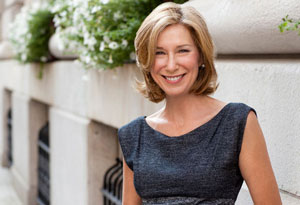The Agony and Ecstasy of (Gulp) Turning 60

Photo: Robert Trachtenberg
Hitting a milestone? Our beauty director, Valerie Monroe, faces an age-old question.
Dear readers, this month the "Ask Val" page might better be called "You Didn't Ask Val, but She's Going to Tell You Anyway." Or, more pointedly, "Holy Crow's-feet, I'm Turning 60."
Yes, in a few weeks, I become a sexagenarian—and despite my optimistic nature, I suspect that sounds a lot more promising than it is.
Not long ago, I was trying to explain to a 45-year-old friend what it feels like to be my age. "It's like this," I said. "I'm going to tell you something about yourself that you don't know, and it's incontrovertibly true no matter what else you believe."
"Okay," she said.
I looked at her hard. "You were born in 1950," I said. "You're actually 60." My friend gave me the kind of blank stare you get when something does not compute. "Well, that just doesn't make any sense," she said.
Exactly. The age I am is not the age I feel. And I'm pretty sure that if you're close to 60 or older, you understand the disconnect. It's not uncommon. In a 1995 study of Americans between 55 and 74, most of them felt 12 years younger than they actually were. Studies in Germany and China have yielded similar results.
As you might guess, one of the most important factors in feeling youthful is good health, or at least a sense of control over your health. If you can exercise and generally kick up your heels without throwing out your back or breaking your legs, naturally, you feel more vigorous than your neighbor who has trouble hauling himself out of a chair. It also helps if you spend your days among younger people.
In many ways, feeling younger than your age is a good thing. Research shows that it can have a positive effect on confidence about cognitive abilities (the sort of confidence I could use the next time I search for my glasses and find them on my nose). And people who feel younger than they are, are less likely to die than same-age peers who actually feel that age.
But there's a wrinkle below the surface of this encouraging news.
If you're a woman, when you get to be 60 (or almost) and begin noticing the disconnect between how old you feel and how old you look, you start to think differently about your face. And by "differently" I mean that you suddenly have to make now-or-never decisions about how much control you want to exert over it. You can decide that you want to try to hold on to your youth by any means possible (in which case surgery will be involved). You can decide that you'll only tinker with the aging process, feeling your way day by day (there are copious options, from microdermabrasion to fillers, and Botox). You can decide to say the hell with it, and watch with brave astonishment as a mustache darkly embellishes your upper lip, your eyebrows gradually vanish, and you develop the jowls you fondly remember on your favorite uncle. Whichever route you follow, you have to take responsibility in a new way for your looks.
Did you know that some of the earliest plastic surgery was the reversal of circumcision on Jewish men who wanted to pass for gentile in Roman times? Plastic surgery in this country, too, was often originally about "passing," with immigrants wanting to change their features to conform to the status quo. And isn't it still often about passing? Older women (and men) yearning to pass for younger?
It's lovely if someone thinks I'm not yet 60 (which is happening less often; I appear to be gaining momentum on a downhill run). But I expect that as the body I live in continues to mature, I'll come to accept the duality of looking one age and feeling another—just as I have come to accept other strange and poignant aspects of the human condition, like our awareness of the raw irrefutability of death. It is what it is.
As for my face: I doubt I'll choose to do more than a bit of Botox and a regular flash of skin-toning laser. I've always wanted to look pretty, and I still want to, but age-appropriately pretty. So I'm not going to try to remodel my outside to correspond with how I feel inside. Because, bottom line, I don't really want to pass for anything but what I am.
Have a question about makeup, skincare, or haircare? Ask Val!
The Best of Ask Val
- Is it possible to get rid of acne forever?
- What's the best way to wear eye makeup under glasses?
- Will I get the same results if I mix shampoo and conditioner brands?
From the November 2010 issue of O, The Oprah Magazine.



